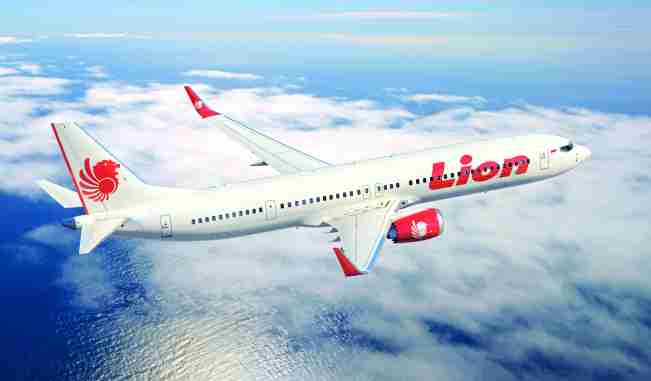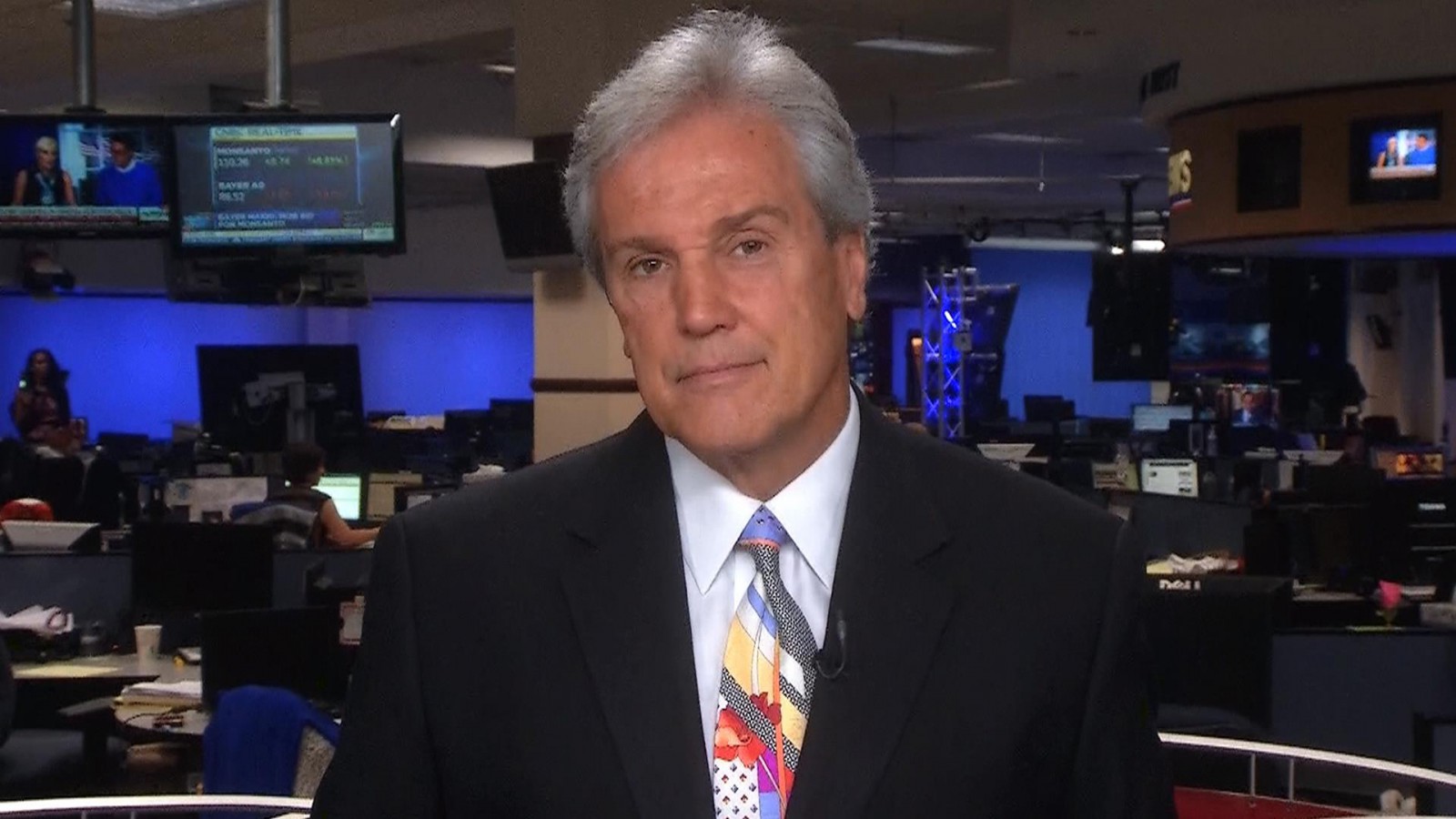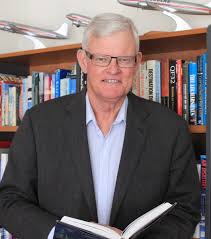Highly respected aviation experts critical of Lion Air pilots and crash report
24 November, 2019
4 min read
By joining our newsletter, you agree to our Privacy Policy


Former NTSB crash investigator is highly critical of the Indonesian NTSC report and the primary conclusion that the MCAS software caused the crash of LionAir Flight 610 in October last year.
Well known, former NTSB crash investigator and air safety expert Greg Feith, says the Indonesian NTSC 322-page report, issued last month, into the LionAir 737MAX tragedy presents an in-depth account of the “factual” information developed during the course of the investigation.
However, Feith says of the report, “there are so many flaws in logic, failures to properly analyze the facts, and failures to hold persons or organizations accountable and much more. They (NTSC) obviously reverse-engineered the “facts” to support their preconceived conclusions that the airplane and MCAS are to blame,” said Mr Feith.
 “The NTSC stated the pilots, especially the First Officer, had significant training deficiencies and lacked basic flying skills. These same deficiencies occurred during the accident flight. These two pilots had no business being in the cockpit and the airplane should not have been operated because of all the maintenance issues that began at the beginning of October, and were not corrected, making the airplane unairworthy.”
Feith questions the NTSC’s silence regarding “the oversight by the Indonesian DGCA and the accountability of LionAir, especially after the airline had several serious incidents and accidents in the past 6 years.
READ Boeing says MAX deliveries could start in December.
Mr Feith’s views are supported by a well-respected Airbus training captain, who told AirlineRatings.com the first officer “could not fly”.
“The report on the FO is an eye-opener as he is constantly very poor in all phases of operating an aircraft,” the training captain said.
“The report indicates a lot of additional training in standard operating procedures and emergencies and this was repeated on almost every subsequent training session but the problems were never resolved.
“There is a continual mention of a very poor instrument scan which was also never resolved. Even more deeply troubling was that, according to the pilot reports, the first officer didn’t understand and had difficulty handling aerodynamic stalls, a fundamental of flying."
“That FO could not fly and I wonder why the Lion Air trainers didn’t cull him as his performance at proficiency checks are all fail items.”
That assessment is supported by one of the world’s leading flight crew trainers, who told Airline Ratings.com “it would appear that much had been overlooked in order to keep the FO operational”.
He said the captain had his issues, too, and asks why the two margin pilots were put together. “While there are ‘green-on-green’ restrictions for the pairing of flight crew with respect to time on type (of plane), this accident makes a compelling case against pairing marginal performing pilots together as well,” he said.
Both the captain and first officer acted as the pilot flying on the fatal flight and the FO was in command when it crashed.
The Digital Flight Data Recorder revealed that the inputs (to correct the nose down pitch from MCAS) from the FO were weaker than the captains, who seemed to have some control over the aircraft.
Why the captain didn't take back control of the 737 is a mystery.
Earlier this month a panel of US government flight-safety experts, the Technical Advisory Board, said that Boeing’s redesign of the 737 MAX complied with regulations and was “safe”.
The Technical Advisory Board, created after the 737 MAX jet was grounded in March has just presented its preliminary report to the FAA. The TAB is made up of aviation experts from the US Air Force, the Volpe National Transportation Systems Center, NASA and FAA.
And US and Europe regulators said the 737 crashes are a watershed for the industry and that previous assumptions on pilot competency have to be re-evaluated for all new designs.
“The NTSC stated the pilots, especially the First Officer, had significant training deficiencies and lacked basic flying skills. These same deficiencies occurred during the accident flight. These two pilots had no business being in the cockpit and the airplane should not have been operated because of all the maintenance issues that began at the beginning of October, and were not corrected, making the airplane unairworthy.”
Feith questions the NTSC’s silence regarding “the oversight by the Indonesian DGCA and the accountability of LionAir, especially after the airline had several serious incidents and accidents in the past 6 years.
READ Boeing says MAX deliveries could start in December.
Mr Feith’s views are supported by a well-respected Airbus training captain, who told AirlineRatings.com the first officer “could not fly”.
“The report on the FO is an eye-opener as he is constantly very poor in all phases of operating an aircraft,” the training captain said.
“The report indicates a lot of additional training in standard operating procedures and emergencies and this was repeated on almost every subsequent training session but the problems were never resolved.
“There is a continual mention of a very poor instrument scan which was also never resolved. Even more deeply troubling was that, according to the pilot reports, the first officer didn’t understand and had difficulty handling aerodynamic stalls, a fundamental of flying."
“That FO could not fly and I wonder why the Lion Air trainers didn’t cull him as his performance at proficiency checks are all fail items.”
That assessment is supported by one of the world’s leading flight crew trainers, who told Airline Ratings.com “it would appear that much had been overlooked in order to keep the FO operational”.
He said the captain had his issues, too, and asks why the two margin pilots were put together. “While there are ‘green-on-green’ restrictions for the pairing of flight crew with respect to time on type (of plane), this accident makes a compelling case against pairing marginal performing pilots together as well,” he said.
Both the captain and first officer acted as the pilot flying on the fatal flight and the FO was in command when it crashed.
The Digital Flight Data Recorder revealed that the inputs (to correct the nose down pitch from MCAS) from the FO were weaker than the captains, who seemed to have some control over the aircraft.
Why the captain didn't take back control of the 737 is a mystery.
Earlier this month a panel of US government flight-safety experts, the Technical Advisory Board, said that Boeing’s redesign of the 737 MAX complied with regulations and was “safe”.
The Technical Advisory Board, created after the 737 MAX jet was grounded in March has just presented its preliminary report to the FAA. The TAB is made up of aviation experts from the US Air Force, the Volpe National Transportation Systems Center, NASA and FAA.
And US and Europe regulators said the 737 crashes are a watershed for the industry and that previous assumptions on pilot competency have to be re-evaluated for all new designs.
 “The NTSC stated the pilots, especially the First Officer, had significant training deficiencies and lacked basic flying skills. These same deficiencies occurred during the accident flight. These two pilots had no business being in the cockpit and the airplane should not have been operated because of all the maintenance issues that began at the beginning of October, and were not corrected, making the airplane unairworthy.”
Feith questions the NTSC’s silence regarding “the oversight by the Indonesian DGCA and the accountability of LionAir, especially after the airline had several serious incidents and accidents in the past 6 years.
READ Boeing says MAX deliveries could start in December.
Mr Feith’s views are supported by a well-respected Airbus training captain, who told AirlineRatings.com the first officer “could not fly”.
“The report on the FO is an eye-opener as he is constantly very poor in all phases of operating an aircraft,” the training captain said.
“The report indicates a lot of additional training in standard operating procedures and emergencies and this was repeated on almost every subsequent training session but the problems were never resolved.
“There is a continual mention of a very poor instrument scan which was also never resolved. Even more deeply troubling was that, according to the pilot reports, the first officer didn’t understand and had difficulty handling aerodynamic stalls, a fundamental of flying."
“That FO could not fly and I wonder why the Lion Air trainers didn’t cull him as his performance at proficiency checks are all fail items.”
That assessment is supported by one of the world’s leading flight crew trainers, who told Airline Ratings.com “it would appear that much had been overlooked in order to keep the FO operational”.
He said the captain had his issues, too, and asks why the two margin pilots were put together. “While there are ‘green-on-green’ restrictions for the pairing of flight crew with respect to time on type (of plane), this accident makes a compelling case against pairing marginal performing pilots together as well,” he said.
Both the captain and first officer acted as the pilot flying on the fatal flight and the FO was in command when it crashed.
The Digital Flight Data Recorder revealed that the inputs (to correct the nose down pitch from MCAS) from the FO were weaker than the captains, who seemed to have some control over the aircraft.
Why the captain didn't take back control of the 737 is a mystery.
Earlier this month a panel of US government flight-safety experts, the Technical Advisory Board, said that Boeing’s redesign of the 737 MAX complied with regulations and was “safe”.
The Technical Advisory Board, created after the 737 MAX jet was grounded in March has just presented its preliminary report to the FAA. The TAB is made up of aviation experts from the US Air Force, the Volpe National Transportation Systems Center, NASA and FAA.
And US and Europe regulators said the 737 crashes are a watershed for the industry and that previous assumptions on pilot competency have to be re-evaluated for all new designs.
“The NTSC stated the pilots, especially the First Officer, had significant training deficiencies and lacked basic flying skills. These same deficiencies occurred during the accident flight. These two pilots had no business being in the cockpit and the airplane should not have been operated because of all the maintenance issues that began at the beginning of October, and were not corrected, making the airplane unairworthy.”
Feith questions the NTSC’s silence regarding “the oversight by the Indonesian DGCA and the accountability of LionAir, especially after the airline had several serious incidents and accidents in the past 6 years.
READ Boeing says MAX deliveries could start in December.
Mr Feith’s views are supported by a well-respected Airbus training captain, who told AirlineRatings.com the first officer “could not fly”.
“The report on the FO is an eye-opener as he is constantly very poor in all phases of operating an aircraft,” the training captain said.
“The report indicates a lot of additional training in standard operating procedures and emergencies and this was repeated on almost every subsequent training session but the problems were never resolved.
“There is a continual mention of a very poor instrument scan which was also never resolved. Even more deeply troubling was that, according to the pilot reports, the first officer didn’t understand and had difficulty handling aerodynamic stalls, a fundamental of flying."
“That FO could not fly and I wonder why the Lion Air trainers didn’t cull him as his performance at proficiency checks are all fail items.”
That assessment is supported by one of the world’s leading flight crew trainers, who told Airline Ratings.com “it would appear that much had been overlooked in order to keep the FO operational”.
He said the captain had his issues, too, and asks why the two margin pilots were put together. “While there are ‘green-on-green’ restrictions for the pairing of flight crew with respect to time on type (of plane), this accident makes a compelling case against pairing marginal performing pilots together as well,” he said.
Both the captain and first officer acted as the pilot flying on the fatal flight and the FO was in command when it crashed.
The Digital Flight Data Recorder revealed that the inputs (to correct the nose down pitch from MCAS) from the FO were weaker than the captains, who seemed to have some control over the aircraft.
Why the captain didn't take back control of the 737 is a mystery.
Earlier this month a panel of US government flight-safety experts, the Technical Advisory Board, said that Boeing’s redesign of the 737 MAX complied with regulations and was “safe”.
The Technical Advisory Board, created after the 737 MAX jet was grounded in March has just presented its preliminary report to the FAA. The TAB is made up of aviation experts from the US Air Force, the Volpe National Transportation Systems Center, NASA and FAA.
And US and Europe regulators said the 737 crashes are a watershed for the industry and that previous assumptions on pilot competency have to be re-evaluated for all new designs.
Next Article
2 min read
Qantas triples profit but misses mark

Get the latest news and updates straight to your inbox
No spam, no hassle, no fuss, just airline news direct to you.
By joining our newsletter, you agree to our Privacy Policy
Find us on social media
Comments
No comments yet, be the first to write one.

